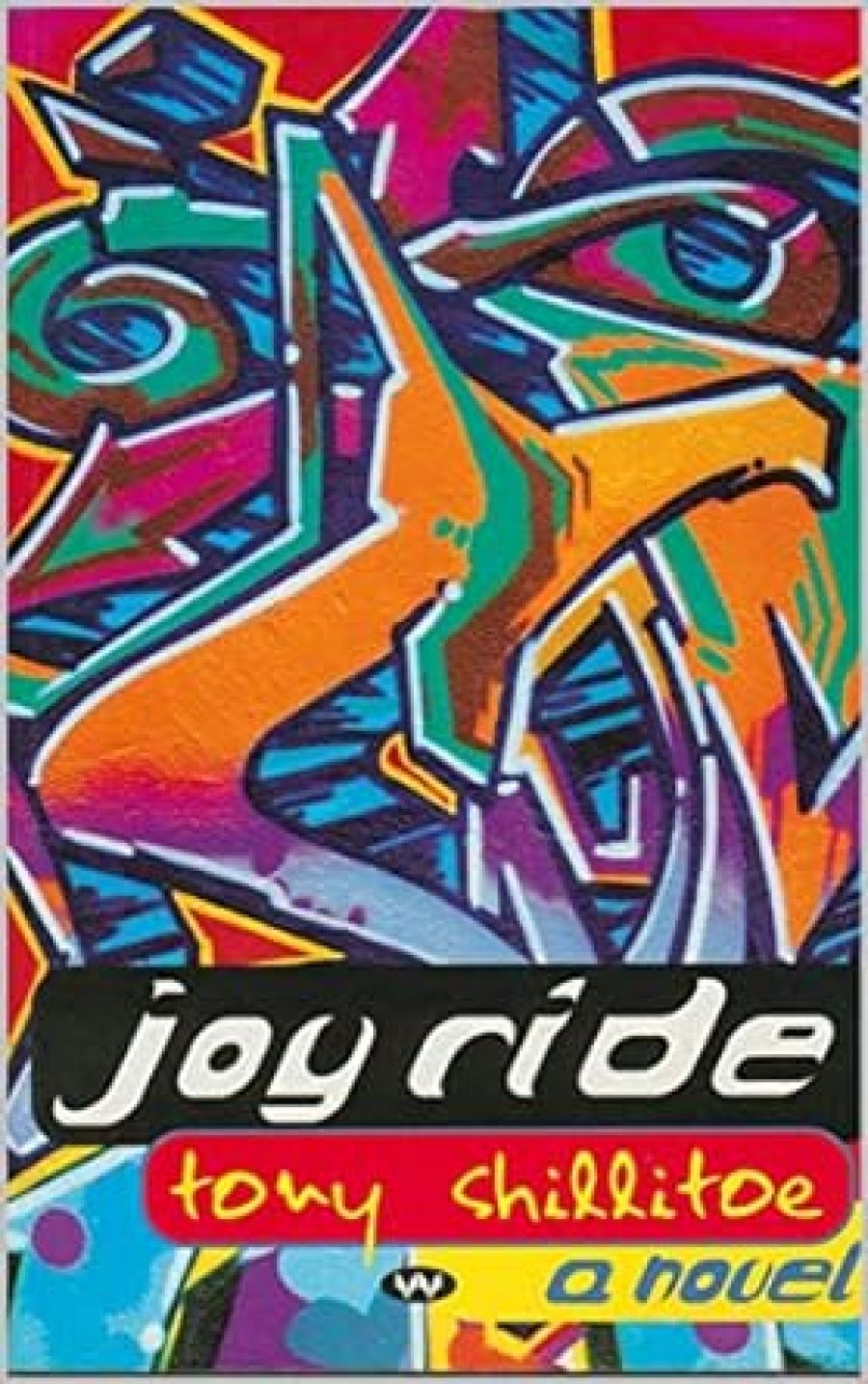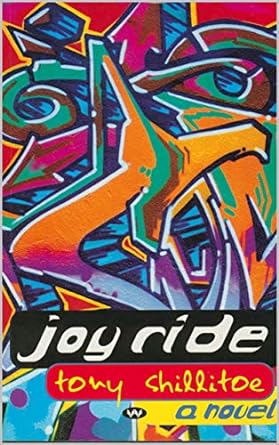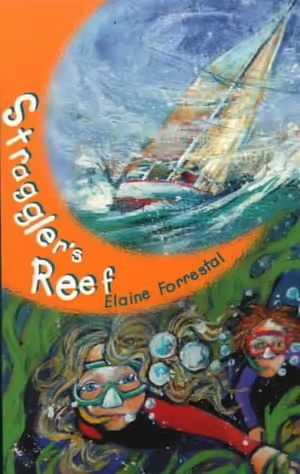
- Free Article: No
- Contents Category: Children's and Young Adult Fiction
- Review Article: Yes
- Article Title: Time Frames
- Online Only: No
- Custom Highlight Text:
One story about a young disaffected male, and another about a sacrificial female, typify the extremes of the range of material currently being published for young people. Straggler’s Reef, for the younger end of the readership, is a conventional story of the past intersecting with the present to resolve events in both time frames. Karri, her brother Jarrad, and their father are sailing off the coast of Western Australia when a squall lands them on a reef. Karri has her grandmother’s recently completed family history to occupy her. The recount of events in the 1840s is engrossing and evocative, and made this reader long for a straight historical novel.
- Book 1 Title: Joy Ride
- Book 1 Biblio: Wakefield Press, $16.95pb, 160pp
- Book 1 Cover Small (400 x 600):

- Book 2 Title: Straggler’s Reef
- Book 2 Biblio: FACP, $12.95pb, 120pp
- Book 2 Cover Small (400 x 600):

In a method reminiscent of the summoning of Beatie Bow in Park’s Playing Beatie Bow (1981), Jarrad’s calling of Karri’s name summons Carrie (Caroline) from the past. Here the interlocking of the past and present narratives becomes more complex: Karri wants to find the treasure apparently lost during a shipwreck on this very reef in Carrie’s time, so that she can afford to go to Film and Television School, a choice inspired by her father’s career in photography; Carrie wants to find the treasure to please her father, who like her, has a passion for the sea and indulges his daughter. Caroline is the most appealing and clearly drawn character – wilful, active, forever getting out of her domestic duties to swim, fish and sail. We suspect that she will have to pay a price for her individuality and lack of conformity, which she does in an act of consummate bravery and generosity, and in so doing provides for the future of her look-alike descendant. The parallels between the two girls are set out clearly and in case the reader doesn’t get it, Jarrad makes it explicit at the end.
Added to the contemporary and historical narrative threads are the danger of the sudden storm, the excitement of the existence of treasure, the tension of diving for it, and the terror of a shark attack, which for this reader, made too rich a mix. Perhaps there is a perception that young readers will only tolerate historical fiction if it is wrapped in external action and excitement, and that they will only understand the workings of a story beneath the surface of narrative if it is spelled out for them. Young readers are smarter than we think and the cynical among them will enjoy that Karri s future is financed not by the actual treasure itself, but by selling the story to ‘all the news papers’.
Scott in Joy Ride (an ironic title if ever there was one) would be more likely to secure his fortune and notoriety, by selling his story to A Current Affair rather than a newspaper, if he had thought of it. Scott is fourteen, unhappy and very angry since his father deserted the family (even though he didn’t like him much) and his mother has trouble coping. Also his best friend, Tim, moves to Queensland – which Scott also interprets as desertion – and his dog is run over.
Scott is a terrible whinger and this is one book where the parent in me kept pushing off the adolescent reader sitting on my shoulder, because nothing suits Scott, everything is someone else’s fault and he is an undeserving victim. Mind you he is fed, clothed, housed, schooled (can’t you hear the little parent homily waiting to get out?) but none of it suits him.
Enter Jason Strickland, blatant nosepicker, teacher baiter, authority violator, dope smoker, chick magnet, car stealer – and Scott is ripe for a change in direction. Together they get drunk, get horny, trash the school before eventually deciding to ‘lash’ to Melbourne, via a stolen bus. At one stage, Scott goes to stay with relatives, and Aunt Kirrilie comes close to getting through to him, but he is too afraid to show his vulnerability, and thanks the family by stealing two hundred dollars from his cousin.
This is a first person narrative and Scott is not the most eloquent or articulate of narrators so that even the sections that are supposed to be edge of the seat, or that explain the thrill of violence, fall flat. There is none of Melvyn Burgess’ ability to reveal the love affair that is heroin addiction, in Junk for example. Scott has not developed a facility for self reflection and exhibits no sense of remorse or regret, except at getting caught. He remains sour, angry, alienated and lacks the imagination to be other than completely powerless to do anything but rail against his situation. Joy Ride is probably an accurate description of an adolescent’s total disaffection. It certainly is of selfish self-centredness, but there’s not much revealed beyond the surface to make sense of it.


Comments powered by CComment